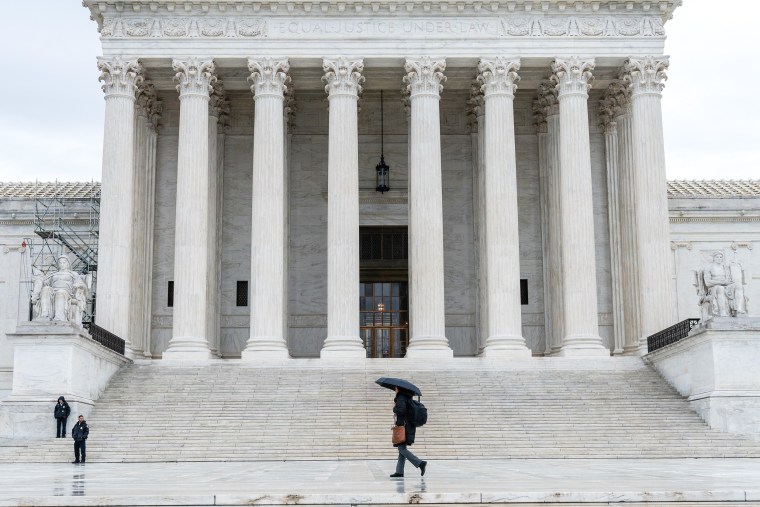Supreme Court Justice Samuel Alito on Friday extended a temporary block on an order restricting the ability of President Joe Biden’s administration to encourage social media companies to remove content it deemed misinformation about Covid-19 and other matters of public concern.
The decision to keep the matter on hold until Wednesday gives the court more time to consider the administration’s request to block an injunction issued by a lower court that had concluded that federal officials likely had violated the free speech protections of the Constitution’s First Amendment by coercing social media platforms into censoring certain posts.
Alito’s order pauses the dispute until Sept. 27 at 11:59 p.m. ET. He had previously halted the lower court’s ruling through Sept. 22. Alito is the justice designated by the court to act on certain matters arising from a group of states that include Louisiana, where the lawsuit was first filed.
The Republican attorneys general of Missouri and Louisiana and a group of social media users sued federal officials, accusing them of unlawfully helping suppress conservative-leaning constitutionally protected speech on major social media platforms.
Those platforms included Meta’s Facebook, Alphabet’s YouTube and X, formerly called Twitter. Many of the posts expressed opinions that federal officials said constituted misinformation about the pandemic.
The Biden administration argued that officials did nothing illegal and had sought to mitigate the hazards of online misinformation by alerting social media companies to content that violated their own policies.
Louisiana-based U.S. District Judge Terry Doughty in July concluded that government officials had coercively pressured the companies to suppress posts by users that expressed views that were against Covid-19 vaccines, pandemic-related lockdowns intended as public health measures or that questioned the results of the 2020 election in which Biden, a Democrat, defeated Donald Trump, a Republican.
The New Orleans-based 5th U.S. Circuit Court of Appeals vacated much of an injunction that Doughty issued restricting the administration’s social media communications, with the exception of a provision concerning coercion, which they narrowed.
The narrowed injunction applied to the White House, the surgeon general, the U.S. Centers for Disease Control and Prevention and the FBI, saying they could not “coerce or significantly encourage” the companies to remove content.
The administration told the Supreme Court that the remaining injunction still went too far and would interfere with how the White House, FBI and health officials address matters of public concern and security.
